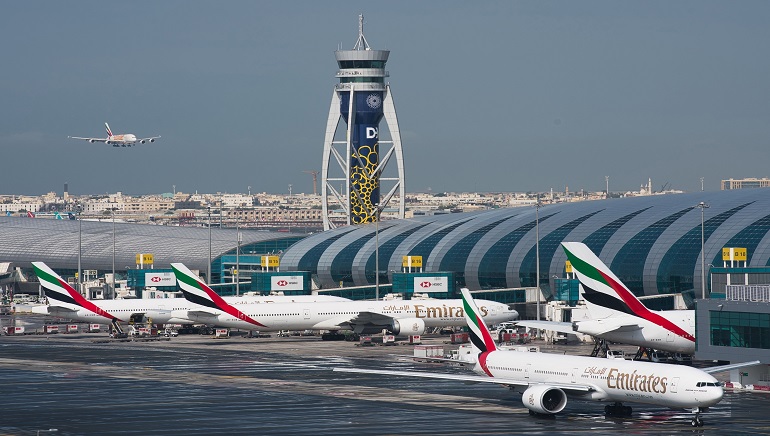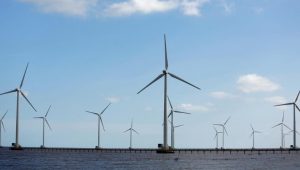Long-haul carrier Emirates successfully flew a Boeing 777 on a test flight on January 30 with one engine entirely powered by sustainable aviation fuel. The test flight comes as carriers worldwide try to lessen their carbon footprint.
The fuel powered one of Boeing’s two General Electric Co. engines, with the other running on conventional jet fuel for safety. Flight No. EK2646 flew for just under an hour over the coastline of the United Arab Emirates. It took off from Dubai International Airport, the world’s busiest for international travel, and headed out into the Persian Gulf before circling back to land.
The state-owned airline Emirates described the sustainable fuel as a blend that mirrored the qualities of jet fuel. It included fuel from Finnish firm Neste and US-based Virent, which describes itself as using plant-based sugars to make the compounds needed for sustainable jet fuel. Neste’s fuel comes from vegetable oils and animal fats. Those fuels reduce the release of greenhouse gas (GHG) carbon dioxide let off by flight engines.
Aviation releases only one-sixth the amount of carbon dioxide produced by cars and trucks, according to the World Resources Institute, but as airplanes fly by far fewer people per day, the sector becomes a higher per-capita source of GHG emissions.















